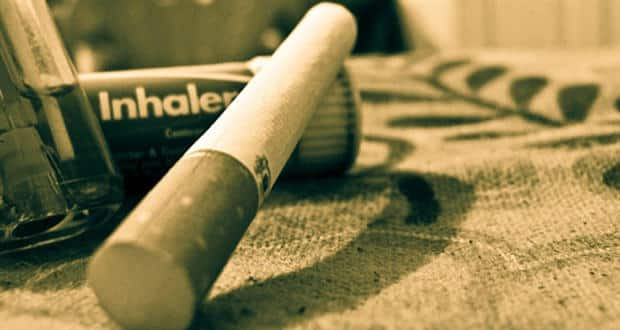Don’t Miss Out on the Latest Updates.
Subscribe to Our Newsletter Today!
Protein could improve lung function and tackle COPD

 Chronic Obstructive Pulmonary Disease (COPD) caused by excessive smoking is characterized by blockage or narrowing of airways in the lungs.
Chronic Obstructive Pulmonary Disease (COPD) caused by excessive smoking is characterized by blockage or narrowing of airways in the lungs.
Researchers identified the protein SAA as playing a key role in chronic inflammation and lung damage in COPD and also in inhibiting the natural effort of the lung to repair itself after smoking has stopped.
Gary Anderson, professor at the University of Melbourne, said the discovery could help improve lung function at any stage of COPD.
Also Read
"It has the potential to dramatically improve the lives of many people suffering these conditions and reduce the huge burden of health and hospital costs associated with their treatment," he said.
The symptoms are shortness of breath, chronic cough, increased mucus production, wheezing or whistling sound, chest tightness and fatigue, among others.
Steven Bozinovski, associate professor from Melbourne, who led the study, said the findings were significant because SAA was normally made in the liver, but they found that very high levels were made in the lungs of COPD patients. "It was a breakthrough for us to confirm that SAA played such a key role in the lung," he said.
Bruce Levy, associate professor at Harvard, said they found that as the SAA interacted with its receptor, it not only triggered lung inflammation but also stopped a natural healing molecule which helped to turn off inflammation and heal the lung.
"This mechanism appears to explain one of the reasons that inflammation in COPD just never resolves despite stopping smoking," he said.
The discovery could lead to the development of a dual treatment by firstly, targeting SAA to switch off its function in the lung and secondly, adding a synthetic form of the natural healing agent to boost lung healing.
Clinical development for the synthetic agent is currently under way in the US.
Source: IANS


